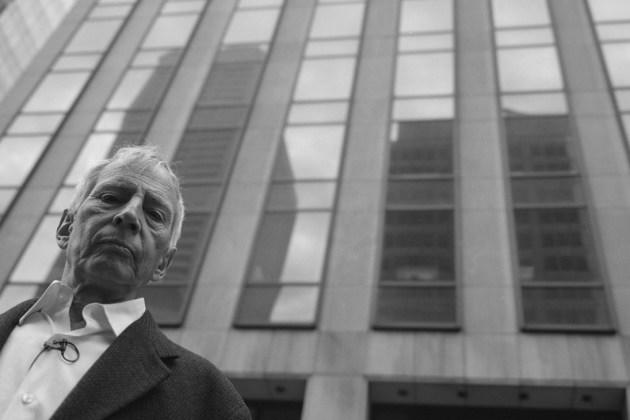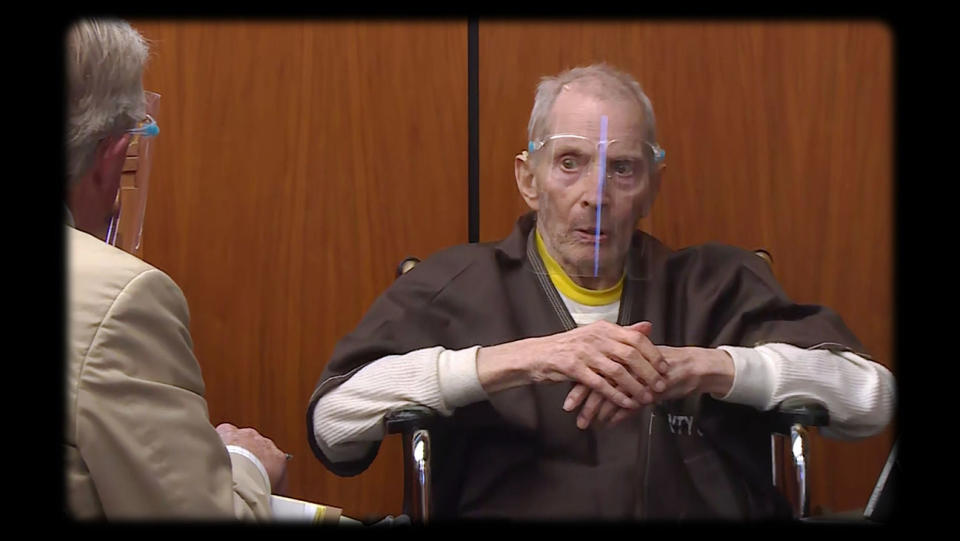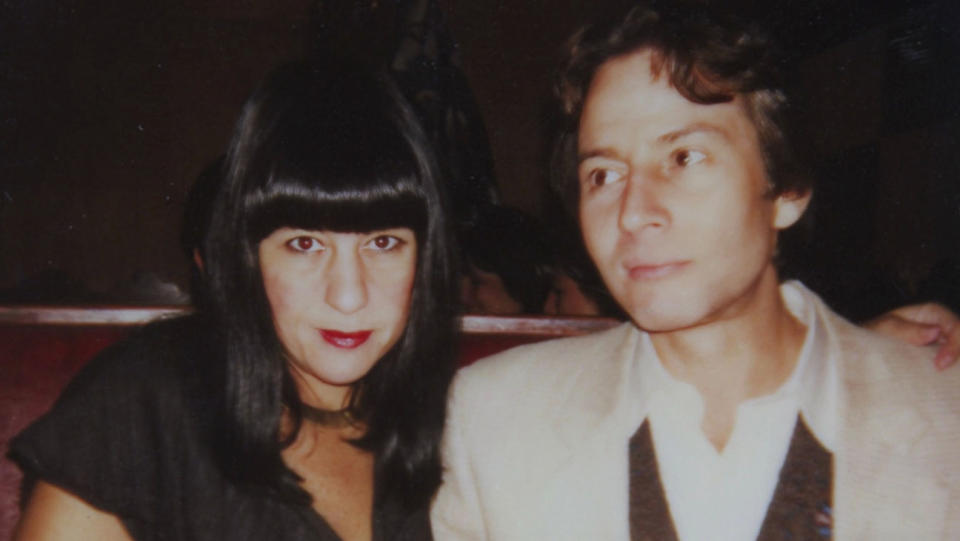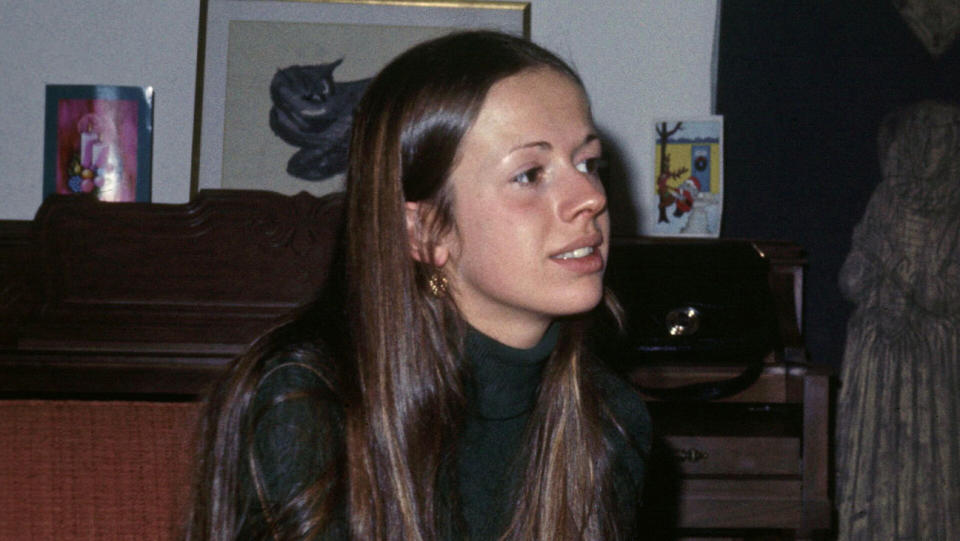‘The Jinx’ Filmmakers Look to Cleanse Themselves of Robert Durst With Part 2 Finale

Andrew Jarecki admits that it’s bizarre and surprising he has been telling Robert Durst’s story for so long. Across two decades, The Jinx director has explored the true-crime tale of the New York real estate heir who was suspected of three murders across his life, which ended in 2022 at age 78 not long after a guilty verdict and prison life sentence was handed down in one of those murders.
“Not only does the story keep shifting and are there so many big human questions that it calls into play, but this whole Part Two is really about something different for us,” Jarecki told The Hollywood Reporter when talking about the follow-up to HBO’s 2015 series (which helped launch the true-crime documentary wave that still exists today). “A lot of Part One was retrospective, where these are terrible events that happened in the past. Part Two is really happening while you are watching it.”
More from The Hollywood Reporter
Johnny Depp, Iggy Pop Celebrate Legendary Tattoo Artist in 'Scab Vendor' Trailer (Exclusive)
How to Perform Pop Music History ... in Drag ... for 24 Hours Straight
Nine years after Durst’s shocking Jinx finale confession would set off a criminal trial for him in the killing of his best friend, Susan Berman, Jarecki and his producer Zac Stuart-Pontier returned with a six-episode follow-up, which releases its finale this weekend.
The penultimate episode focused on Durst’s 2021 testimony in the Berman murder trial. Following Durst’s subsequent guilty verdict, the series poses a question that sharpens its lens on Debrah Lee Charatan, Durst’s widow who then became the executor of his estate.
Durst was not present for the reading of the verdict because he was sequestered with COVID. The person who informed Durst was Alan Abramson, the criminal attorney hired by Charatan. Heading into the finale, viewers left wondering why Charatan hired a criminal lawyer should know that, following Durst’s death — and his conviction being vacated because of a California technicality — Charatan is now facing a wrongful death lawsuit from the family of Kathleen Durst McCormack, Durst’s first wife who disappeared in 1982 and whose body was never found.
The episode tracked the moments leading up to the guilty verdict, including a key twist in the case when Durst finally admitted to writing the infamous cadaver note, which was a focus of The Jinx Part One and was believed to have been written by Berman’s murderer. “That’s what caused them to do everything they did after that,” said the lead prosecutor, Los Angeles Deputy District Attorney John Lewin, heading into the May 19 episode. When Durst took the stand, he faced days of cross-examination from Lewin, who picked apart Durst’s testimony to show how he was, in the words of Lewin, a “pathological liar.”
“The lies get bigger and crazier until they are basically a huge snowball out of a cartoon,” said Lewin to the filmmakers, looking back on the trial. Ultimately, Lewin got Durst to admit on the stand, “I did not kill Susan Berman. But if I had, I would lie about it.”
When speaking to THR ahead of the season, Jarecki said he felt that Durst had a “compulsion to confess” after all of these years. “I think he knew that he had killed the people who loved him,” he said, particularly speaking about McCormack. After he was convicted for the first-degree murder of Berman — including the special circumstance that he killed her as a witness to another crime, the killing of McCormack — Durst was indicted on the charge of second-degree murder in McCormack’s death. However, he died while in custody before a trial could begin, leaving the civil lawsuit as the only remaining legal avenue for the grieving McCormack family.
“She’s always been the touchpoint,” said Jarecki of McCormack. “Her and her family. So, continuing to tell this story was important from that standpoint.”
Now, as The Jinx — Part Two approaches its final episode, here is the second part of THR‘s chat with Jarecki and Stuart-Pontier about Durst’s involvement in the follow-up (by way of recorded prison calls), why they won’t give up on seeking justice for McCormack and whether or not they are truly done with Bob Durst. (Read part one of THR’s conversation here.)
***
How much were you hinging on speaking directly with Robert Durst for The Jinx — Part Two?
ZAC STUART-PONTIER When we got those jail recordings, it was one of the more exciting moments of making this season. You almost get a more honest Bob, because he’s talking to the people who he cares about and trusts. And we get to hear a lot about what he thinks about Andrew [Jarecki] and what he thinks about The Jinx. We get a really front-row seat with him where, before we had those recordings, this season was way less exciting.
At what point when making this season did you get those prison recordings?
STUART-PONTIER It came in stages because some of them were used as evidence. But the parts that were used as evidence were not necessarily the parts that were most exciting to us. We loved when Bob was just being Bob. “Have you seen me in my jumpsuit?” That doesn’t have evidentiary value, but it’s incredible to see him in those moments, like waving to his friends. Andrew was mentioning complicity as a theme of Part Two, and I think you see a lot of that in the way he interacts with them.

Because you kept your cameras rolling after Part One, you were able to capture the reactions of the people who participated in the series at your finale screening. How much of Part Two was for the people in that room, and seeking accountability and justice?
JARECKI We always think about the victims, and especially about the McCormack family. Because Kathie McCormack was kind of an incredible person. She really was the hope of that family. That family has always been struggling in a way, and she was the person who broke out. She was incredible with kids; it was tragic that [Durst] basically forced her to have an abortion. She had a really tough time with him. And still, I think [she] was hopeful. Many people relate to her in that way — they end up with a guy where they see problems and assume they can fix it, and I think she felt like she could be really important to him and humanize him. And then she wasn’t able to and really walked into a buzzsaw.
I also think it’s important to understand that it wasn’t just Bob Durst. If the Durst family had communicated with the police instead of closing ranks; instead of lawyering up, if they had done what you would imagine somebody would do, which would be, “Oh my God, our sister-in-law disappeared, let’s get into it.” But the reality is that they knew a lot more than they had said at the time, and I thought it was important to continue to explore that. That is something that is and will become a more important part of the season. Understanding Bob’s wife [Charatan], understanding the people around him and bringing some measure of accountability there as well is a driver.
What we’re seeing in the world and this country right now is a lot of complicity. There used to be certain norms, but people have a great way of saying, “Well I wasn’t the one who did that thing. I was present, but I was really more of a guardrail.” But it turns out that all these people helped. That’s a really powerful thing, certainly in our minds now, looking at the culture and what people are getting used to. Bob was kind of ahead of his time.
He’s this incredible spellbinder; he brought people into his orbit, not only by paying them off — although, he did a lot of that, too — he found a way to make people fall for him. He used his humor and hypnotic voice and brought people into activities that even to this day they say, “Well, I didn’t kill anyone. Yes, I did put $118,000 into a suitcase and ship it to Bob when he needed it. But if I thought he was guilty, I never would have done that.” Well, was it a tip-off that he needed $118,000 to go on the run? Was that something that might have raised a flag?
You want to see someone who helped a murderer and say, “Well, I never would have done that.” But when you start to see who these human beings are and how Bob was in a way drawing in vulnerable people, you realize that those people are not all that different from us. And people are starting to say, “I would have never done that. But if I had a sick child or a big problem and my friend was offering me $400,000 in one form or another, what would I have done?” That’s why I love that Charlie Bagli [The New York Times writer] line where he says, “I would like to think that if I had a friend who was implicated in one, two, three murders that I would recoil from that. But, who knows until you are tested.”

That brings me to the fact that you got many of these people to participate in Part Two. Earlier in the season, you shared how you got Durst and Berman pal Nick Chavin on board. And it was striking to see you, Andrew, say in Part Two how the resurfaced audio from Susan Berman speaking shortly after Kathie’s disappearance changed your perspective on something you’ve been working on for 17 years. How did you decide how much you wanted to look back at Susan Berman here?
JARECKI I’ll answer on Nick. I don’t want to just take his word for it that that’s why he participated, because all these shapes are shifting and there’s always this interesting prism in Bob world. [Chavin said he missed an opportunity for fame by not being in Part One]. … Al Maysles told me long ago, “Nobody wants to die without telling their story.” And Nick, obviously, was motivated about being the center of attention or being famous. But I think that these interviews do something else. I think they give people the opportunity to really walk around some difficult territory in a way that will allow them to understand it better themselves.
And that’s why I think these interviews can be so cathartic. If you see Nick, and you’ll see more of Nick, you’ll see that something is happening with him. He starts in a different place than he ends up. So the sitting down [for an interview] is never just about what they say. The reality is that Nick was there for that first interview for four days, and then we went back down and interviewed him in Florida. And what happens during that kind of a deep dive — and it’s very much what happened with Bob [in Part One] — is that they really start to reveal themselves. It’s an experience for them, it’s not just for the camera. They’re going through something and trying to justify it or get to the bottom of it, and understand it themselves. And that’s the thing that carries me through the fourth day of the interview because I’m watching something happen. I’m not just listening to a retelling of something.
STUART- PONTIER The structure of this season was a lot about Susan Berman, and we knew that because the trial was going to be focused on her and her role. The charge that John Lewin and the L.A. DA’s office charged was a special circumstance murder, which meant that Susan was a witness to a crime. And, what crime was that? The death of Kathie Durst. So we were very curious about what was going to be added and how much more could be said about Susan Berman’s actions in 1982, and we were blown away when we found that tape [of Berman talking about theories around McCormack’s disappearance]. That was a very genuine reaction from Andrew [after hearing the audio]. We were together the first time we heard it, driving back from an interview with Charles Bagli, and our jaws were on the floor. It’s so immediate, to have a tape of Susan Berman talking nine days after [Kathie’s death]. It really changes what you think about her and plays with your idea of, is Susan a victim? Who is she? She’s not all good, and she’s not all bad, but she’s definitely a very gray character. And weaving that journey of how much to tell the audience was a challenge.
JARECKI It also highlights the difference of Lewin’s agenda and our agenda. It was important for Lewin to maintain a certain perception of Susan. And Lewin was probably smart for doing that. As he says, you don’t want the jury to hate your victim. But, we didn’t have that obligation at all with the series. We were OK with that response. We wanted to really understand her for who she was. And, I don’t hate her at all. I understand that Susan was drawn in by Bob in a lot of ways, but there was something very broken about Susan, and I have compassion for her, but I also do see her as highly complicit.
STUART-PONTIER We tried to put her in context, though. Embracing her past with her father, that certainly had an impact on the choices she made. Even when we’re not pulling any punches and showing a pretty ugly side of her, we’re trying to put those choices in context and not judge them. The way that episode ends is one of my favorite endings, on Susan’s words: “Don’t let your past choices erase your present.”
Knowing how you ended The Jinx — Part One, there are expectations about an aha moment coming in the finale. Is this truly the end of the Bob Durst story for you, as you wrap this two-decade run? What can you say about what questions you will answer by the end and, are there any you still have?
JARECKI We always have some questions. But I think this feels like a great stopping place. It’s never impossible that something new happens, or we make a new discovery. But I think the holding back of the episodes [the final two were not screened for press], is not because we want to tantalize people. It was really that we were saying: what’s the right amount for people to see and keep it fascinating, and keep the revelations coming? So, there are revelations. But the whole rhythm of Part Two is just different. It’s a lot of surprises happening in front of you the whole time, which is what makes it so fascinating for us. I don’t know if it’s as much about the single reveal or the big moment, as it is about this tapestry of reveals.
You spoke about the conflict you’ve been through, Andrew, in your relationship with Bob; your film put him away, but you did get to know this man. The verdict came down and then he died so soon after. Where are you in your feelings now?
STUART-PONTIER I feel incredibly fortunate to be working with Andrew on this. We’re doing the podcast. We’re reimagining a lot of this for audio. We’re going back to season one and talking about a lot of that. We really are doing a complete accounting of our feelings on this whole saga. All the information is right at our fingertips — the timeline, the characters, the clips. I’m still just trying to enjoy this last moment.
JARECKI The word I think you were searching for is a “cleanse.” (Laughs) I feel that we’re going to stay connected to this story. One of the things that’s happening right now is that the McCormack family is in the middle of this civil suit. You’ll see some of it in the [finale]. But I really care about how that comes out. There’s a level of accountability where they need a win. They need to get to the end of this and know not just what he did, but see some people held accountable in a way they haven’t yet. So, there are ongoing things that I think we’ll just naturally be drawn to and, I don’t know, maybe we’ll film things. We always do.

So your cameras are not officially down?
JARECKI They never really are, right? We went to the [Durst] sentencing hearing in L.A. and the courtroom was empty; we were sitting in the audience part. And all of a sudden, this door opened like 25 feet across from me. I can’t see anything, and then I see the two arms of a wheelchair come in, and there’s Bob, being pushed toward me. I’m the only thing in his line of vision — he’s staring at me and I’m staring at him. I even said to my friend, “I think I should be filming this.” Even though it’s probably not going to be in the show, these are moments that I want to remember, if nothing else.
But I also do think it’s time to replace this hard drive with something else. We need this memory! (Laughs) We need all this space in our brains. So, Zac and I are working on some other stuff and starting to think about that. But there’s no way this subsides. I think the un-Durst is going to start to occupy more of our brains than the Durst. But I’m not really in a hurry to get rid of it. It’s been such a learning experience about human beings. It’s not just a story about this guy; it’s about who we are.
The Jinx — Part Two airs its finale Sunday at 9 p.m. on HBO and Max. Read part one of THR’s conversation here.
Best of The Hollywood Reporter

 Yahoo News
Yahoo News 
